Zakouma National Park
Situated just south of the Sahara Desert and above the fertile rainforest regions, the Greater Zakouma Ecosystem is well positioned as the primary safe haven for Central and West African wildlife.
Characterised by perennial river systems, rich floodplains, and seasonal wildlife migrations, Zakouma National Park is an uplifting story of revival for this ecoregion, which stretches across the width of Africa to the south of the Sahara Desert. Once a stronghold for well over 4,000 elephant, by 2010 the park had lost 90% to ivory poachers. Nevertheless, in that same year, the Government of Chad invited African Parks into a long-term agreement to manage Zakouma National Park, protect its remaining wildlife, and re-establish stability for the surrounding communities. With the overhaul of the park’s conservation law enforcement and community engagement strategies in place, the results were palpable. Wildlife numbers began to increase and by 2016, poaching was virtually eliminated. Zakouma became known as a place of safety, a source of employment, and a service provider to communities.
Building on this success, in 2017 African Parks was invited by the government to manage the neighbouring Siniaka-Minia Wildlife Reserve (SMWR) and Bahr Salamat Faunal Reserve (BSFR), as well as adjoining wildlife corridors, thereby giving African Parks the mandate to manage the entire Greater Zakouma Ecosystem (GZE) of 28,162 km2 and have an even greater impact for biodiversity and local communities.
With the courage and persistence of its diverse people, Zakouma National Park and its greater region are excellent examples of what is possible when partnerships are formed with a common vision to protect biodiversity for the sake of people and wildlife.
Zakouma Highlights
- 2022 marked six straight years without a single recorded poached elephant with Zakouma’s elephant population showing a 40% increase since 2010.
- Zakouma is home to 50% of the global Kordofan giraffe population and numbers are on the rise.
- In 2022, over 900 buffalo were translocated to Siniaka Minia Wildlife Reserve from Zakouma in the largest-ever buffalo translocation.
- The GZE is the largest employer in the region, providing permanent jobs and developing and supporting opportunities for local income-generating activities and sustainable enterprises.
- Tourism has seen a resurgence, with increasing numbers of Chadian visitors to the park in recent years seeking to experience their natural heritage.
On the Horizon
We are focused on implementing the management of the Greater Zakouma Ecosystem which includes the completion of a Land Use Plan, developing a green economy around the park, enhancing local capacity and ownership, furthering infrastructure, and ranger training. Donate to African Parks to enable the long-term vision, where, with government and funding support, people and wildlife can mutually benefit.
Partners
Zakouma National Park is managed by African Parks in partnership with the Government of Chad. In 2010, the government and European Union approached African Parks to assume management responsibility for the park. In 2017, the conservation footprint was doubled around Zakouma when African Parks signed an MoU with the government to manage the Greater Zakouma Ecosystem, which includes the Siniaka Minia Wildlife Reserve and other critical wildlife corridors. In 2022, the agreement was renewed, thus securing the long-term sustainability of this vitally important ecosystem.
Partners